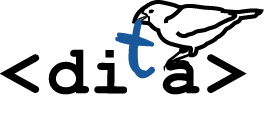DITA Orientation
Who should attend this course?
Anyone who wants to understand more about DITA.
| Duration | 1 day |
|---|---|
| Price | Call for details |
| Location | Contiem House, Sutton, London, SM1 1JN, UK, or at your premises. |
Benefits
The course provides a comprehensive overview of how DITA works, its benefits, and the considerations and decisions that support a successful DITA implementation. It provides the foundation knowledge for working with DITA authoring, publishing and content management software tools.
It also helps drive a successful Information Architecture design and development process, because it helps inform the stakeholders in the fundamentals that DITA offers. This in turn helps the team understand the choices and design considerations being proposed by the IA specialist.
Included in this course
90 days email support from your trainer is included in the price of the course.
Length of course
1 day
